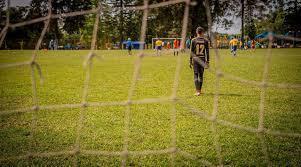
In recent years, educators and researchers have increasingly recognized the importance of social-emotional learning (SEL) in fostering student success. SEL involves teaching students skills that help them manage emotions, build healthy relationships, and make responsible decisions. By integrating SEL into the curriculum, schools can create a supportive environment that promotes both academic achievement and personal growth. This article explores the critical role of social-emotional learning in student success and provides strategies for effective implementation in schools.
Social-emotional learning (SEL) is the process through which students acquire and apply the knowledge, attitudes, and skills necessary to understand and manage emotions, set and achieve positive goals, feel and show empathy for others, establish and maintain positive relationships, and make responsible decisions. SEL is fundamental to a well-rounded education and essential for personal and professional success.
Integrating SEL into education offers numerous benefits, including:
The Collaborative for Academic, Social, and Emotional Learning (CASEL) identifies five core competencies of SEL:
Effective implementation of SEL in schools involves several strategies:
To evaluate the effectiveness of SEL programs, schools can:
Incorporating SEL into daily school routines can be simple and impactful. Here are a few examples:
Social-emotional learning is a cornerstone of student success, encompassing both academic achievement and personal growth. By fostering self-awareness, emotional regulation, social skills, and responsible decision-making, SEL equips students with the tools they need to navigate the complexities of life. Integrating SEL into the curriculum, creating supportive environments, and involving families and communities can lead to significant improvements in student well-being and success. Embracing social-emotional learning ensures that students are not only prepared for academic challenges but also for the broader challenges of life, making them well-rounded, resilient, and compassionate individuals.
#trending #latest #education

How [Athlete's Name] Is Changing the Game On and Off the Field...Read More.

The Impact of Social Media on Today's Top Athletes...Read More.
 Top 10 Fashion Trends for Summer 2024
Top 10 Fashion Trends for Summer 2024
Top 10 Fashion Trends for Summer 2024
 India Decides: Latest Updates on General Election Results 2024
India Decides: Latest Updates on General Election Results 2024
Stay Informed with Real-Time Coverage and Analysis
 Mallikarjun Kharge's suggestion of "new partners" hints at potential shifts in coalition dynamics regarding government formation.
Mallikarjun Kharge's suggestion of "new partners" hints at potential shifts in coalition dynamics regarding government formation.
Both the TDP and the JDU have been allies of the Congress in the past.
 UP Election 2024 Results Highlights: Major Upset for BJP-Led NDA as INDIA Bloc Secures Significant Victory
UP Election 2024 Results Highlights: Major Upset for BJP-Led NDA as INDIA Bloc Secures Significant Victory
India's most politically significant state, Uttar Pradesh, became the arena for a fierce showdown be
 Election Results 2024 Highlights: Celebrations at BJP Headquarters as NDA Prepares for 3rd Term, INDIA Alliance Makes Strong Showing
Election Results 2024 Highlights: Celebrations at BJP Headquarters as NDA Prepares for 3rd Term, INDIA Alliance Makes Strong Showing
2024 Election Results Highlights: Poll Pundits Predicted a Third Term for PM Narendra Modi, but BJP'
How [Athlete's Name] Is Changing the Game On and Off the Field

How [Athlete's Name] Is Changing the Game On and Off the Field
The Impact of Social Media on Today's Top Athletes

The Impact of Social Media on Today's Top Athletes
Off the Court: [Athlete's Name]'s Ventures Beyond Sports

Off the Court: [Athlete's Name]'s Ventures Beyond Sports
The Most Iconic Moments in [Athlete's Name]'s Career

The Most Iconic Moments in [Athlete's Name]'s Career
How [Athlete's Name] Balances Fame and Family Life

How [Athlete's Name] Balances Fame and Family Life
The Style Game: How Athletes Are Setting Fashion Trends

The Style Game: How Athletes Are Setting Fashion Trends
From Injury to Victory: Comeback Stories of Elite Athletes

From Injury to Victory: Comeback Stories of Elite Athletes
The Ultimate Fitness Routine: How [Athlete's Name] Stays in Shape

The Ultimate Fitness Routine: How [Athlete's Name] Stays in Shape
Inside the Mind of a Champion: [Athlete's Name]'s Winning Mentality

Inside the Mind of a Champion: [Athlete's Name]'s Winning Mentality
Beyond the Field: The Charitable Work of [Athlete's Name]

Beyond the Field: The Charitable Work of [Athlete's Name]
Legends in the Making: The Next Generation of Sports Icons

Legends in the Making: The Next Generation of Sports Icons
Trailblazers: Female Athletes Who Are Dominating the Sports World

Trailblazers: Female Athletes Who Are Dominating the Sports World
The Evolution of [Sport]: How Athletes Have Changed the Game

The Evolution of [Sport]: How Athletes Have Changed the Game
Breaking Barriers: Athletes Who Redefined the GameBreaking Barriers: Athletes Who Redefined the Game

Breaking Barriers: Athletes Who Redefined the Game
The Secrets to [Athlete's Name]'s Training Regimen

The Secrets to [Athlete's Name]'s Training Regimen
From Rookie to Pro: The Inspiring Journey of [Athlete's Name]

From Rookie to Pro: The Inspiring Journey of [Athlete's Name]
Behind the Scenes: A Day in the Life of [Athlete's Name]

Behind the Scenes: A Day in the Life of [Athlete's Name]
Plot no 90, Ganpativilla, sahibabad Ghaziabad UP 201005
+91 8585968676
info@trendingblogsea.com
© techtell. All Rights Reserved.